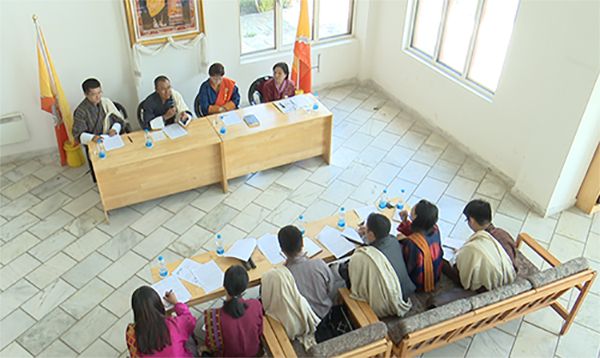 Continuous rainfall, travel history and poor cooperation from the public are some of the problems, identified by the Health Ministry, for the unexpected record of dengue outbreak this year.
Continuous rainfall, travel history and poor cooperation from the public are some of the problems, identified by the Health Ministry, for the unexpected record of dengue outbreak this year.
This was shared by the Health Ministry during a press conference, today. Dengue fever is spread by the bite of mosquito identified as Asian Tiger Mosquito.
Since July, over 7600 suspected dengue fever cases were recorded. Of which, more than 1900 cases were tested with dengue positive from 18 dzongkhags. Phuentshogling alone recorded over 1500 cases. The health minister said, besides many free services from the ministry, many people failed to use mosquito repellents and impregnated mosquito nets.
“When you have an outbreak, we go and assess outbreaks and its causes and sources. We learnt a lot while assessing. We realized that almost 88 per cent of our people who got dengue wear shorts and half sleeve shirts while they are out in the public. Majority of them are not even wearing proper attire. Then we have 56 per cent whose household surroundings had all this problem with a stagnation of water. And 53 per cent of these people did not use mosquito nets,” said Dechen Wangmo, the Health Minister.
Bhutan recorded only one dengue death in 2003. This year, four patients succumbed to dengue fever. The ministry says, at present, patients who are tested with dengue positive are on track with treatment.
“In dengue, what we have to remember is, the first attack, normally you suffer but no chance of death unless already you have cancer, diabetes, or some other diseases. But the second attack dengue is dangerous. During the second attack, we have to be more alert because the blood platelet will go down and that can kill the person. And our health facility can transfuse the platelets and save the person. So, that is why it is important for people to use the health facility,” said Ugen Dophu, the Secretary for Health Ministry.
Learning lessons from this year, the health ministry is planning to come up with various initiatives. The ministry plans to strengthen and collaborate with relevant stakeholders in dengue-endemic regions to curb the dengue outbreaks in the coming years.
“Source reduction has become very important agenda. So, we will be developing an operational plan for source reduction for the cause of dengue. Capacity building is another because we have been always trying for other diseases especially malaria but dengue has been given less importance. But now we are going to build capacity through support from the World Health Organisation and Global Fund. We don’t have effective early warning system of dengue so far. So we will be coming up with early warning system,” added Rixin Jamtsho, the Chief Programme Officer of Communicable Diseases Division under the Health Ministry.
“Wherever there is unplanned urbanization, you should be worried about dengue because there will be water shortage and people will collect water in their houses. And solid waste disposal is another important thing that dzongkhags, Thromdes and local government have to address. I want to put it on record and warn the people if they don’t take actions, next year before the rainy season if another dengue comes in we will see thousands of people suffering from dengue hemorrhagic fever,” shared Karma Lhazeen, the Director of Dept. of Public Health.
Meanwhile, the ministry reported that the dengue suspect cases have been decreasing across the country. The ministry has scheduled to conduct a cross border meeting at Gelegphu from 2nd to 3rd of next month.







